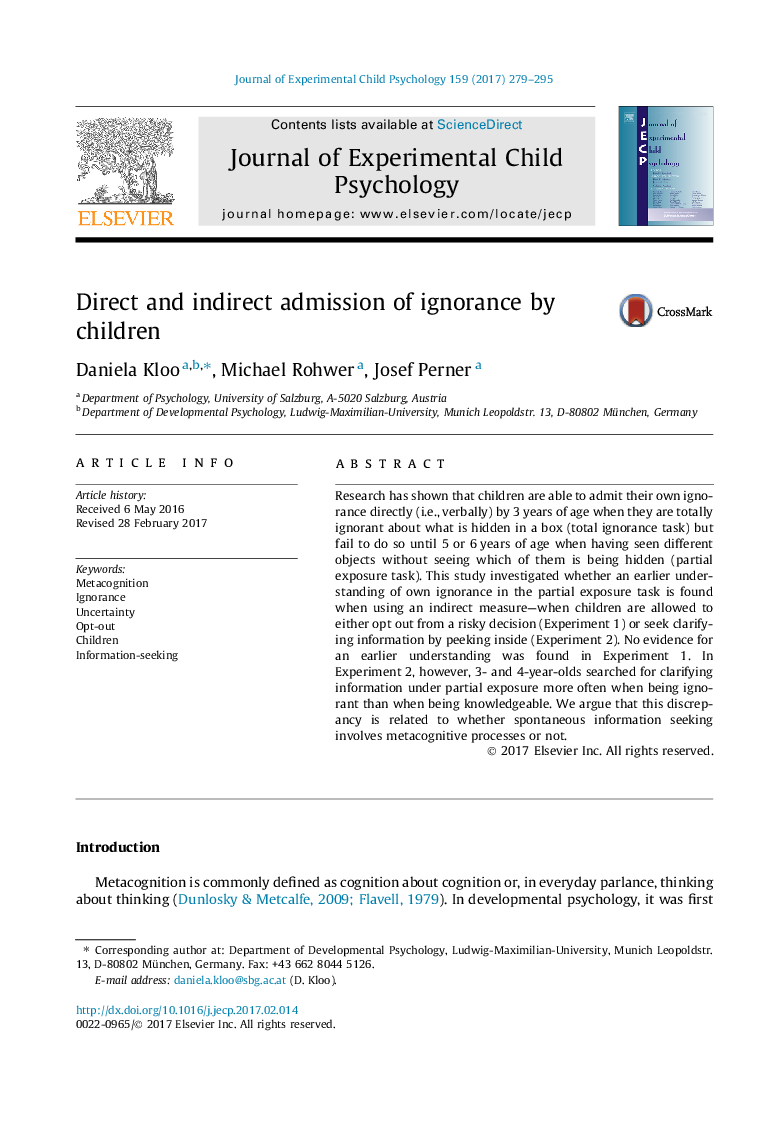| Article ID | Journal | Published Year | Pages | File Type |
|---|---|---|---|---|
| 5039993 | Journal of Experimental Child Psychology | 2017 | 17 Pages |
Abstract
Research has shown that children are able to admit their own ignorance directly (i.e., verbally) by 3Â years of age when they are totally ignorant about what is hidden in a box (total ignorance task) but fail to do so until 5 or 6Â years of age when having seen different objects without seeing which of them is being hidden (partial exposure task). This study investigated whether an earlier understanding of own ignorance in the partial exposure task is found when using an indirect measure-when children are allowed to either opt out from a risky decision (Experiment 1) or seek clarifying information by peeking inside (Experiment 2). No evidence for an earlier understanding was found in Experiment 1. In Experiment 2, however, 3- and 4-year-olds searched for clarifying information under partial exposure more often when being ignorant than when being knowledgeable. We argue that this discrepancy is related to whether spontaneous information seeking involves metacognitive processes or not.
Related Topics
Social Sciences and Humanities
Psychology
Developmental and Educational Psychology
Authors
Daniela Kloo, Michael Rohwer, Josef Perner,
